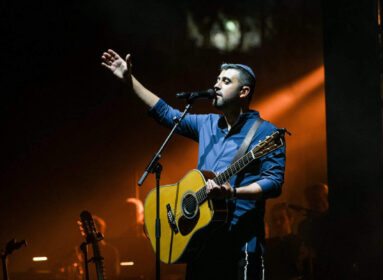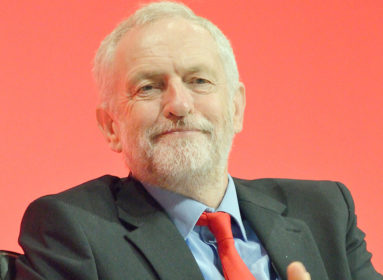By Cindy Mindell
“When it comes to connecting to Judaism and community, what gets in the way for a lot of kids are not religious issues but personal issues –
how we feel about Judaism, about our families … about our place in the community and in the world.”
By Cindy Mindell
Ten years ago, while serving as assistant regional director of New England Region National Conference of Synagogue Youth (NER NCSY), Trencher founded Heart, Mind & Soul (HMS). From one program in West Hartford, HMS has grown to include New York, New Jersey, Florida, and Israel. Trencher spoke with the Ledger about how the program came about and how it works to empower Jewish teens.
Q: Why did you create the program?
A: I had been working with teens for 10 years, both in formal and informal Jewish education settings and I was getting really tired of sitting across from these fantastic kids and knowing that I saw them as way more valuable and magnificent than they saw themselves. I wanted to create a program to help them see themselves as others see them so that they can go out into the world and start doing the things they were meant to do and making the contributions they were meant to make. That’s a lot of what I do in my role at HHNE, that’s a lot of what I do as a private therapist, but this program for the general Jewish teen population is one of my best tools to make that happen and to bring that into the Jewish community and make it a reality for our Jewish teens.
In the Orthodox Jewish world, there are tremendous resources brought to bear for Jewish outreach and religious developments; there are many youth groups that have the mission of helping Jewish youth grow religiously. There are programs throughout the community to help kids connect more Jewishly, lots of resources for Jewish education and to make sure that kids are Jewishly knowledgeable, and those are all fantastic.
When it comes to connecting to Judaism and community, what gets in the way for a lot of kids are not religious issues but personal issues – how we feel about Judaism, about our families and other relationships, about our place in the community and in the world. Many groups are trying to give these kids information and knowledge related to why it’s important to be Jewish and Jewishly connected and it is important. But it’s not only what you believe, but how you feel about what you believe.
There’s a quote I love, by child psychologist David Elkind: “The child is constantly confronted with the nagging question, ‘What are you going to be?’ Courageous would be the youngster who could look the adult squarely in the face and say, ‘I already am.’”
We have created, as a society, this period of adolescence — as opposed to a couple of hundred years ago where, when you were 12 or 13 you were out there working, and you were married not long afterward. Now, teens are in an in-between place, not kids and not adults and not responsible, and we just hold them in this place. We want them to be responsible and we tell them that they’re not responsible and that we’re in charge, and when they try to make decisions we tell them that their brains aren’t developed and that they lack good judgment.
Q: What issues was Heart, Mind & Soul designed to address?
A: Part of the goal in doing this is to demonstrate that personal growth and development, improving how we are in relationships, how we treat people and ourselves, and how much we love and care for ourselves, are all critical components in being a religious personality. Judaism is not just about ritual, and personal growth is not only synonymous with religious growth, but is rather a crucial component of religious growth. I think that’s what makes this program unique.
This is an experiential program designed to foster personal growth for Jewish youth, and there’s nothing like this except for at-risk teens. If I were a normal, well-adjusted high school student interested in improving my relationships and my inside, this is a program that helps kids look at those things. Our experience has been that it has impacted not only on how they feel about themselves and how they connect with their families, but how they connect with their Judaism.
I’m passionate about this program because within the Jewish world, there are plenty of resources brought to bear for kids with “problems” and there are a lot of resources for teens at risk. But we do very little as a community by way of primary prevention programs that help them identify their strengths and build on those strengths. As they encounter challenges in their own lives, with their families, at school and in the community, I want them to have taken some time thinking about these things and to have a place to develop their own strengths and tools to meet those challenges. Instead of waiting for kids to be in crisis, I wanted to develop something for kids while they’re doing well and looking to build themselves up to be better friends, family members, leaders, and members of the community.
Q: How has the program changed since 2003?
A: When we first started, we looked around to find similar types of programs in the secular world. We hired a company that runs these types of programs and licensed a lot of the activities. Over time, we’ve developed it into something we felt comfortable with, that is really positive and empowering. We didn’t want something where we were lecturing to the kids or telling them they had to be a certain way to be successful. Instead, we wanted to listen to them and help them develop their own strengths and get clear on their own dreams and goals and encourage them in that direction. That’s what’s unique about the program.
We’ve developed a workshop that begins by helping the teens to become more open to the idea of looking within. We help them be curious and interested in the idea of self-improvement and at looking at areas where they can improve, and at how they function and can improve their role as part of team. We run activities to help them identity their values and strengths and look at how they can be more of those things and what might be getting in the way of their becoming those things. For example, a student says, “I’m confident” and we ask, “Where are you not confident and what’s getting in the way of your confidence?”
It’s not group therapy, but rather is designed to give kids a push in the direction they want to go, so that they feel more empowered and more connected to other people and Judaism and the community.
Q: Do you find that the issues teens face are similar across Jewish denominations?
A: The issues are all the same: like how I can stay connected with my family and their values while at the same time being my own person. There are a lot of issues around self-esteem, a lot of kids wanting to improve relationships with their families, and a lot of kids who don’t feel accepted for who they are, either in their families or at school. There are a lot of kids struggling with being bullied and being bullies. The other issue with teens is wanting more privileges but being afraid of taking on more responsibility. We help them with how to accept responsibility so that they can develop the life they want. We help them get past being the victim of other people and blaming other people – parents and teachers and other authority figures – so that they can be responsible for themselves.
We tailor the program to the community: next month, we’re running a program for Lubavitch girls from Crown Heights, our first all-girl program, because that’s what they require in that community. In West Hartford, we get a lot of kids who are very Jewishly knowledgeable and connected. In Florida, we get mostly community-school kids who are not Jewishly observant. In Israel, the population is entirely Orthodox-affiliated.
Q: Give an example of a skill you teach at HMS.
A: A kid comes to their parent and says, “I want this.” They want the car but they haven’t demonstrated that they’re ready for the responsibility of having a car. We teach communication skills, like “A Good Way to Say Stuff”: The kid says to the parent, “I feel ____ when you do ____ like you did ____ [name an example]. My part in this is ____. What I want from you is ____. Will you do that? What you can count on me for is ____.”
Then the situation is not an argument or a complaint or a power struggle. After the workshop, the kids can go back to family or friends and start trying these different ways of communicating.
Q: Who is the HMS team?
A: We have a fantastic board of parents and past HMS participants who are now adults. Our staff includes Pam Dunn, a life coach and very experienced group facilitator for teens and adults who developed a program in St. Louis for first-time juvenile offenders involving gun violence; Marc Geisler, a clinical social worker in Florida who is also Jewishly active; Rabbi Elie Weinstock, a rabbinic advisor; and Esther Russell, a performer and professor of theater at Stern College.
The most important part of the team are our assistants, those teens who have done the workshop and want to come back. We train them to be assistants because the program is based on Adlerian psychology: Alfred Adler felt strongly, as we do as Jews, that our success in life, and our emotional and even physical health, depend on our seeing ourselves as being connected to something bigger than ourselves, caring about our community and others.
Teens are naturally self-focused and we encourage them at the workshops to focus on themselves. But their next step is to focus on others, and to learn that you don’t need a special degree or position to help others. Everybody can make a contribution. So the people who help out most at the workshops are high-school and college students, and every participant who comes back has a job – coordinate something, organize the food, clean the room, restock the bathrooms. Everyone is empowered in a role and is paired up as a peer mentor for one of the participants who is coming for the first time.
Of course, it’s all supervised by older people and facilitators and professionals to make sure that everybody is doing okay and everything is going well. This is all about empowering these teens and teaching them to be willing to accept personal and communal responsibility, and to know that they’re way more capable than they’d ever thought.
Q: How do you measure success?
A: When I first started, I did a survey that wasn’t very scientific but relied on anecdotal feedback; the kids and parents and guidance counselors think it’s great. As we grow and seek funding, we’re interested in doing more research to quantify the results. We just started using a survey that employs established validated measures, scales rating social support, self-efficacy, and coping mechanisms. We ask the teens to rate these factors at the beginning of the weekend workshop and at the end. In a month or so, we’ll look at how they have maintained their coping mechanisms and improved their ability to reach out and get support. That will be the basis of how we refine the program and know better who this is helpful for and how it’s helpful.
For more information: www.heartmindandsoul.org / (860) 255-4467
Comments? email cindym@jewishledger.com.







 Southern New England Jewish Ledger
Southern New England Jewish Ledger















